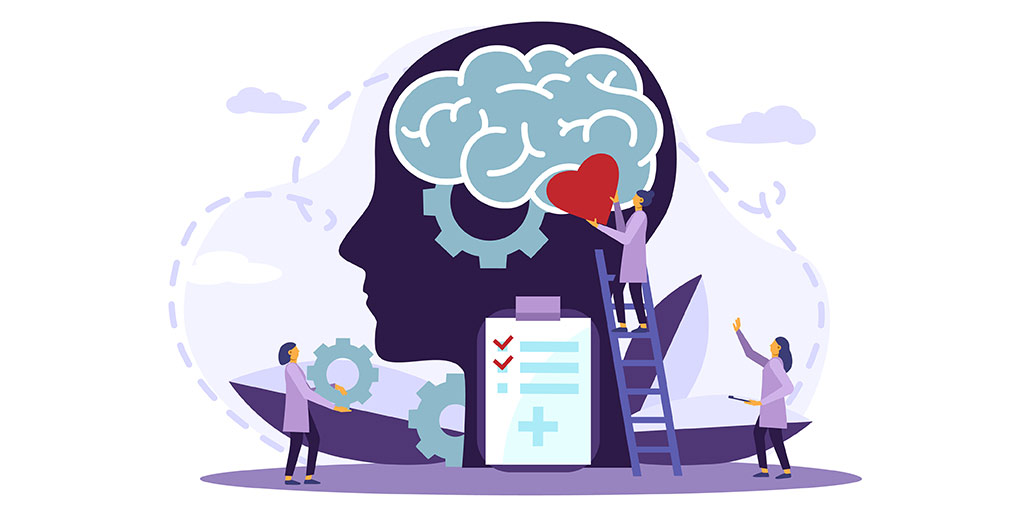
Speaking With Behavioral Health Patients About Adherence
How all members of a patient’s healthcare team can create a safe environment to discuss psychotropic medication adherence.
Overall, 49 percent of major psychiatric disorder patients are non-adherent to their psychotropic medication.¹ The number one reason behavioral health patients do not take their medications is due to lack of awareness of their illness. Other reasons include:
- Lack of social support
- Lack of understanding of disorder
- Concurrent drug or alcohol abuse
- Cost
- Side effects
- Forgetfulness
- Decision to not take medication
Medication adherence is a challenge for any patient—regardless of the chronic conditions they have. But it’s particularly important for patients with behavioral disorders to be adherent, as non-adherence can lead to serious consequences.
- Decreased responsiveness to subsequent treatments¹
- Rehospitalization
- Relapse of symptoms
- Increased comorbid medical conditions
- Poor quality of life
- Increased risk of suicide
- Episodes of violence

Talking to Patients About Adherence
Due to the increasing prevalence of behavioral health disorders, it’s important for healthcare professionals to understand how to create safe and comfortable environments. This will make it easier to have conversations with patients about their medication adherence and other challenges they are facing. This will help set the patient up for success and create a stronger relationship between patients and members of their healthcare team.
Be empathetic and understanding.
Communicating in a relaxed and calm manner and using tactics such as reflective listening can be effective. Try saying something like, “I hear you are having a bad day today. Some days can be tougher than others. I understand.” This can make the patient feel more comfortable that they are being heard.
Also avoid prying and show respect and understanding for how they describe and interpret their symptoms.
Evaluate the patient’s attitude toward medication.
The patient’s opinion of taking medication will impact their willingness to take it. You can use this time to determine whether they have preconceived notions, fears, goals or hopes regarding a particular medication.
Here are some true/false questions you can ask your patients to better understand how they feel about taking their medications:
- I feel normal on medication.
- Medication makes me feel more relaxed.
- Medication makes me feel tired and sluggish.
- I get along better with people when I am on my medication.
- I am in better control of myself when I am on my medication.
- I am happier and feel better when I am on my medication.
- My thoughts are clearer on medication.
Make the patient feel more included in making decisions about their own health.
If a patient’s medication regimen is too complicated, working with the patient to simplify it will help them feel more involved in their health decisions. It will also help make the patient more adherent by creating a regimen that they understand and can follow.
Make non-medication treatment recommendations.
If a patient is having trouble staying adherent, recommending treatment in addition to medication can help take the pressure off of the patient. You can provide suggestions such as utilizing personal support networks, following a diet, implementing physical fitness routines, and going to therapy.
A Pharmacists Role in Behavioral Health
Pharmacists are in a great position to help patients who take psychotropic medications. Through consistent medication reviews and the space to have direct conversations with patients, they can:
- Identify people at risk of mental health crises
- Screen for mental health issues
- Provide education for people living with mental illness
- Identify interactions or other potential adverse drug events
- Provide feedback to other members of the healthcare team when potential issues are identified
Several studies have even shown that pharmacist involvement can lead to improvements in prescribing practices and satisfaction among people living with behavioral health disorders.² Pharmacists play a key role in the patient’s health journey and should be utilized as much as possible.
At ExactCare, we have many patients with behavioral health disorders and understand the importance of creating a safe environment to have conversations to better understand patient challenges, concerns and goals with their medications.
¹Psychotropic Medication Non-Adherence and its Associated Factors Among Patients with Major Psychiatric Disorders: A Systematic Review and Meta-Analysis. National Library of Medicine, 2020 Jan 16.
²Pharmacists’ Roles in Mental Healthcare: Past, Present and Future. National Library of Medicine, 2021 Sept11.







